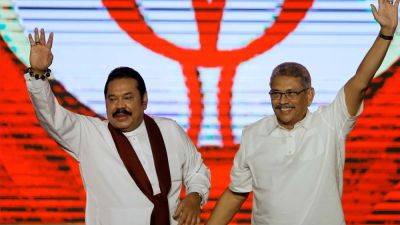In Sri Lanka, India embraces a resurgent old foe to keep China at bay
During his visit to Delhi from February 5-10, he headed a delegation from National People’s Power (NPP), a political alliance founded by Dissanayaka nine years ago that a December opinion survey indicated was polling at 50 per cent ahead of presidential polls set for September or October.
Against this backdrop, analysts view Delhi’s outreach to the JVP-led NPP as an attempt to win influence over a political party with a long-held antipathy towards India.
“NPP is not the ideal scenario for India’s interests in Sri Lanka because the JVP had a well known anti-Indian policy,” said Professor Nirmal Ranjith Dewasiri, head of the University of Colombo’s history department. “But [Delhi] cannot do anything about it.”
JVP’s founding leader, the late Rohana Wijeweera, lectured on “Indian expansionism” during the 1980s, Dewasiri told This Week in Asia, and “India was perceived as an enemy of Sri Lankan interests in those lessons”.
The party also vehemently opposed the Indo-Lanka accord of 1987 – signed by Sri Lanka’s then-president J.R. Jayewardene and India’s Rajiv Gandhi – that aimed to resolve the island’s long-running civil war but instead sparked major protests after it led to an Indian military contingent carrying out peacekeeping operations in the country for three years.
The accord was the catalyst for lawmakers passing that year’s controversial 13th amendment to Sri Lanka’s constitution, which has yet to be fully implemented. Proposed by India as a solution to ethnic clashes between the Sinhalese majority and Tamil minority, the amendment remains an important element of Delhi’s agenda, but many in Sri Lanka see its provisions devolving police and other powers to provincial councils as a threat to national unity.
JVP led an





